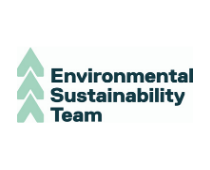Category Archives: Construction & refurbishment

Blackout 2017
On Friday 10th March staff and students gathered together to take part in the National Union of Students’ Blackout campaign. After a brief training session and donning their Blackout t-shirts, the volunteers split into teams and went to audit non-essential

Blackout 2017
On Friday 10th March staff and students gathered together to take part in the National Union of Students’ Blackout campaign. After a brief training session and donning their Blackout t-shirts, the volunteers split into teams and went to audit non-essential
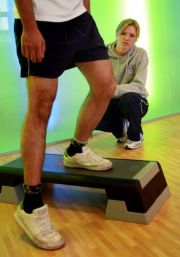
The Green Machine steps up to Green Impact challenge
Guest post from Lauren Broderick (Sports Centre receptionist) “Here at the sports centre we have been working towards the silver award in the first year of taking part in the Green Impact project. The whole team have got behind the

The Green Machine steps up to Green Impact challenge
Guest post from Lauren Broderick (Sports Centre receptionist) “Here at the sports centre we have been working towards the silver award in the first year of taking part in the Green Impact project. The whole team have got behind the
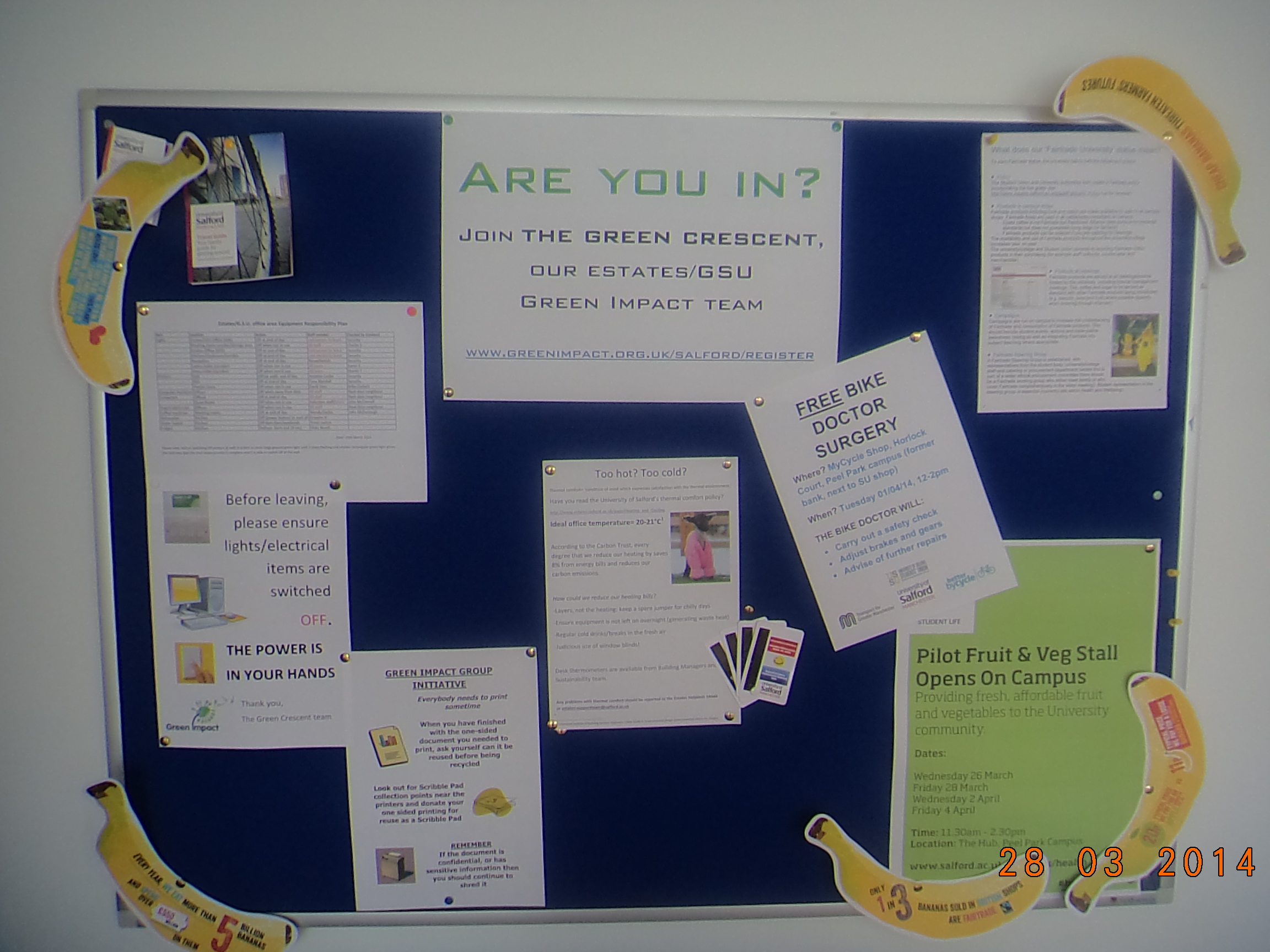
Team Green Crescent: what Green Impact means to me
Green Crescent are ready to hit ‘submit’ on their Green Impact Bronze workbook. Progress dragged at first, but with the movement of the Governance Service Unit team into Estates H/Q came a new flush of enthusiasm and a well-stocked team.

Team Green Crescent: what Green Impact means to me
Green Crescent are ready to hit ‘submit’ on their Green Impact Bronze workbook. Progress dragged at first, but with the movement of the Governance Service Unit team into Estates H/Q came a new flush of enthusiasm and a well-stocked team.
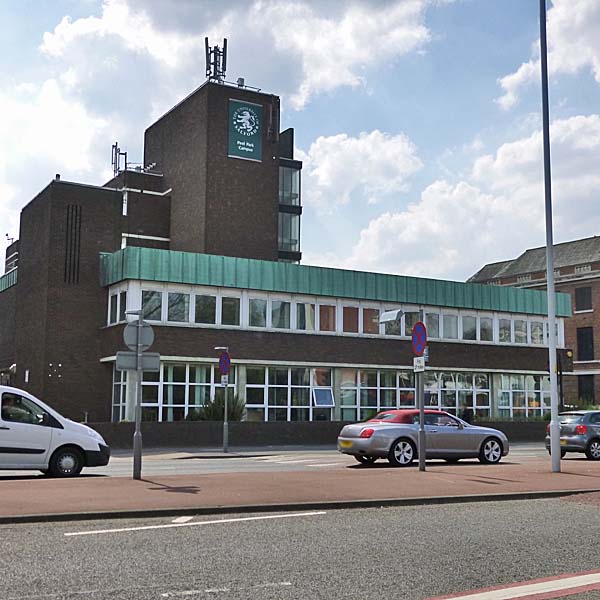
Advancing towards a greener way of working
Guest post by Paul Butlin (Advancement Green Impact team, Faraday House) Over the past four months the Advancement team have been working towards Green Impact bronze award. We have found that making lots of small changes has really helped us

Advancing towards a greener way of working
Guest post by Paul Butlin (Advancement Green Impact team, Faraday House) Over the past four months the Advancement team have been working towards Green Impact bronze award. We have found that making lots of small changes has really helped us

Success and tea for GreenCSE!
The Green CSE team, who share an office in Newton Building, won our recent Go for Gold Week prize of a tea party, despite some stiff competition from other teams (congratulations in particular to The Green Machine in the Sports

Success and tea for GreenCSE!
The Green CSE team, who share an office in Newton Building, won our recent Go for Gold Week prize of a tea party, despite some stiff competition from other teams (congratulations in particular to The Green Machine in the Sports
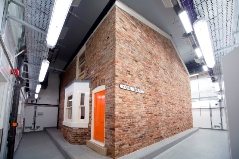
Energy House Team makes start on Green Impact
Guest post by Richard Fitton, Applied Buildings and Energy Research Group With the new year coming the team have made it their new year’s resolution to start trying to ascend the Green Impact league. As a unit that prides itself on

Energy House Team makes start on Green Impact
Guest post by Richard Fitton, Applied Buildings and Energy Research Group With the new year coming the team have made it their new year’s resolution to start trying to ascend the Green Impact league. As a unit that prides itself on
Greening SURF
Guest post by Dr Vicky Simpson, SURF The Centre for Sustainable Urban and Regional Futures (SURF) has always regarded sustainability as a key focus of its work. The SURF Centre is committed to reducing its environmental impact and helping to
Greening SURF
Guest post by Dr Vicky Simpson, SURF The Centre for Sustainable Urban and Regional Futures (SURF) has always regarded sustainability as a key focus of its work. The SURF Centre is committed to reducing its environmental impact and helping to
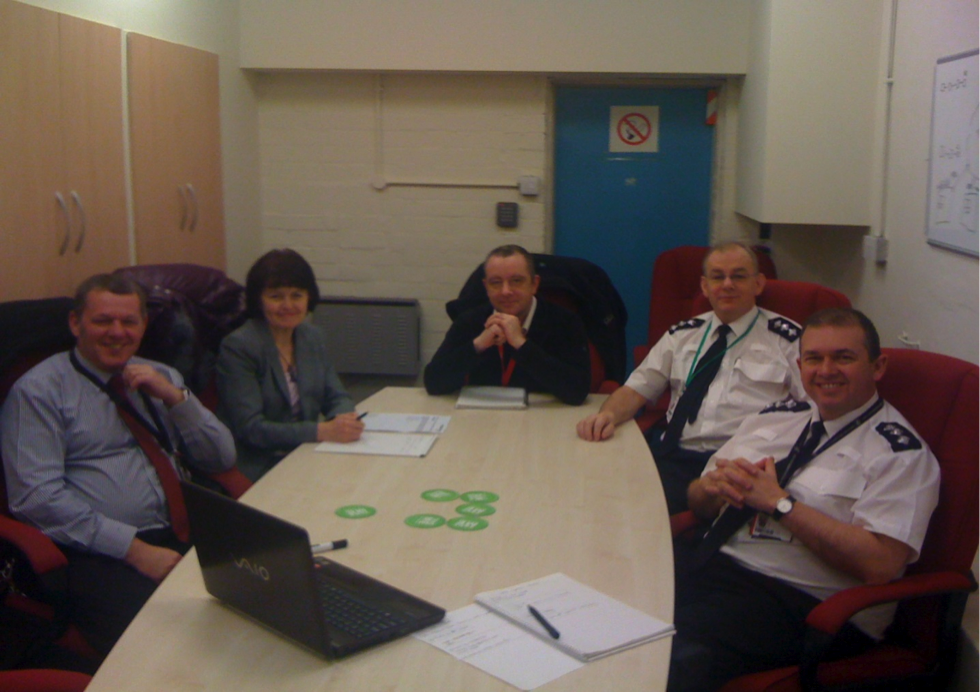
Meet the S.U.R.G.E team!
Guest article by M. Spahiev (Green Impact Project Assistant for S.U.R.G.E) Green Impact is a scheme which encourage staff and students to reduce their environmental impact. Although the program is in its fifth year nationwide, this is the first year

Meet the S.U.R.G.E team!
Guest article by M. Spahiev (Green Impact Project Assistant for S.U.R.G.E) Green Impact is a scheme which encourage staff and students to reduce their environmental impact. Although the program is in its fifth year nationwide, this is the first year
Achieving Bronze: Green Impact workshop tips for those who missed out!
We’re almost at the end of Go for Gold Week, and today’s workshop ‘How to Achieve Green Impact Bronze’ by Sophia Perkins of the NUS deal with a number of Green Impact’s aims: bringing people together, discussing challenges and finding
Achieving Bronze: Green Impact workshop tips for those who missed out!
We’re almost at the end of Go for Gold Week, and today’s workshop ‘How to Achieve Green Impact Bronze’ by Sophia Perkins of the NUS deal with a number of Green Impact’s aims: bringing people together, discussing challenges and finding
